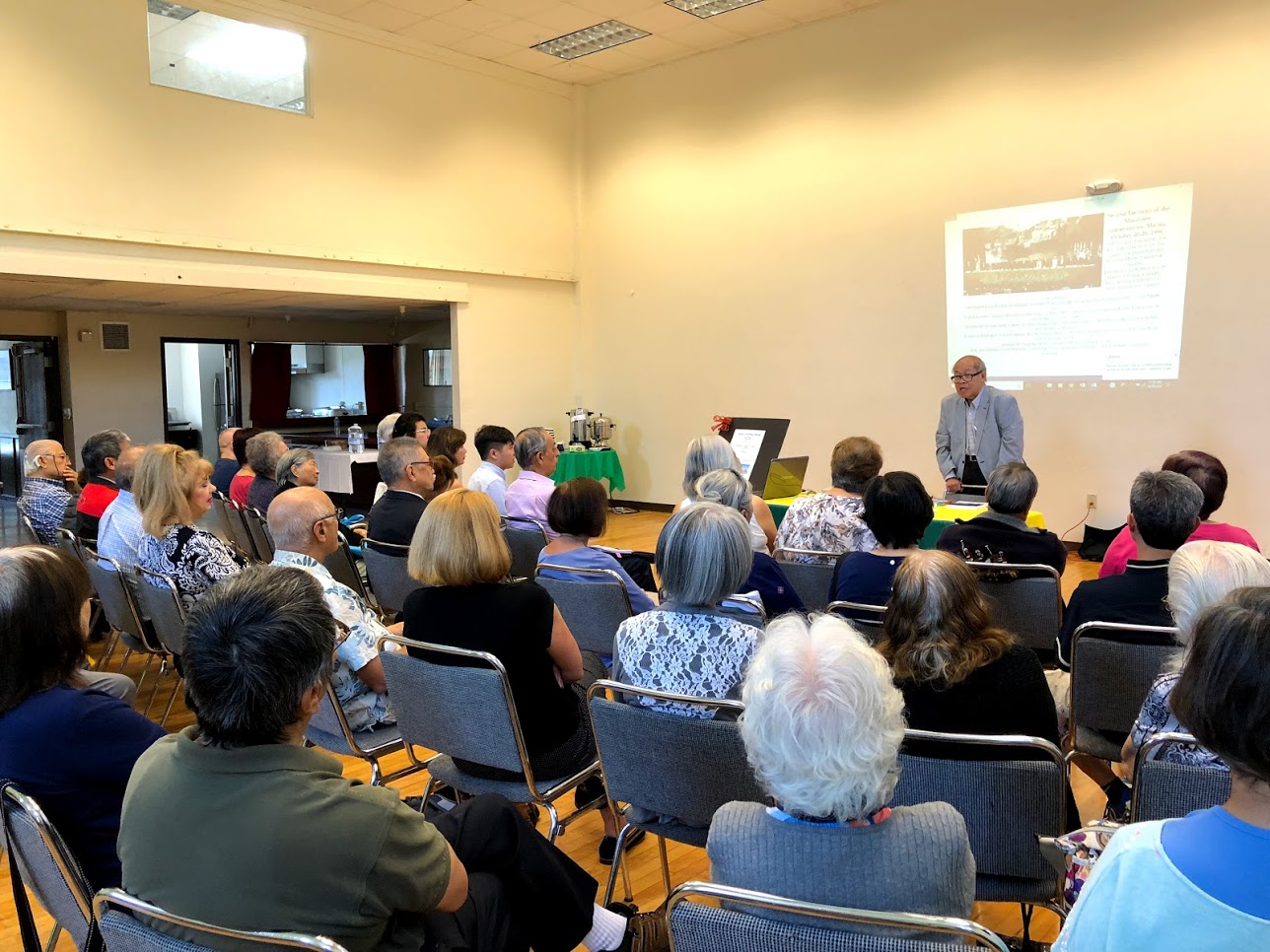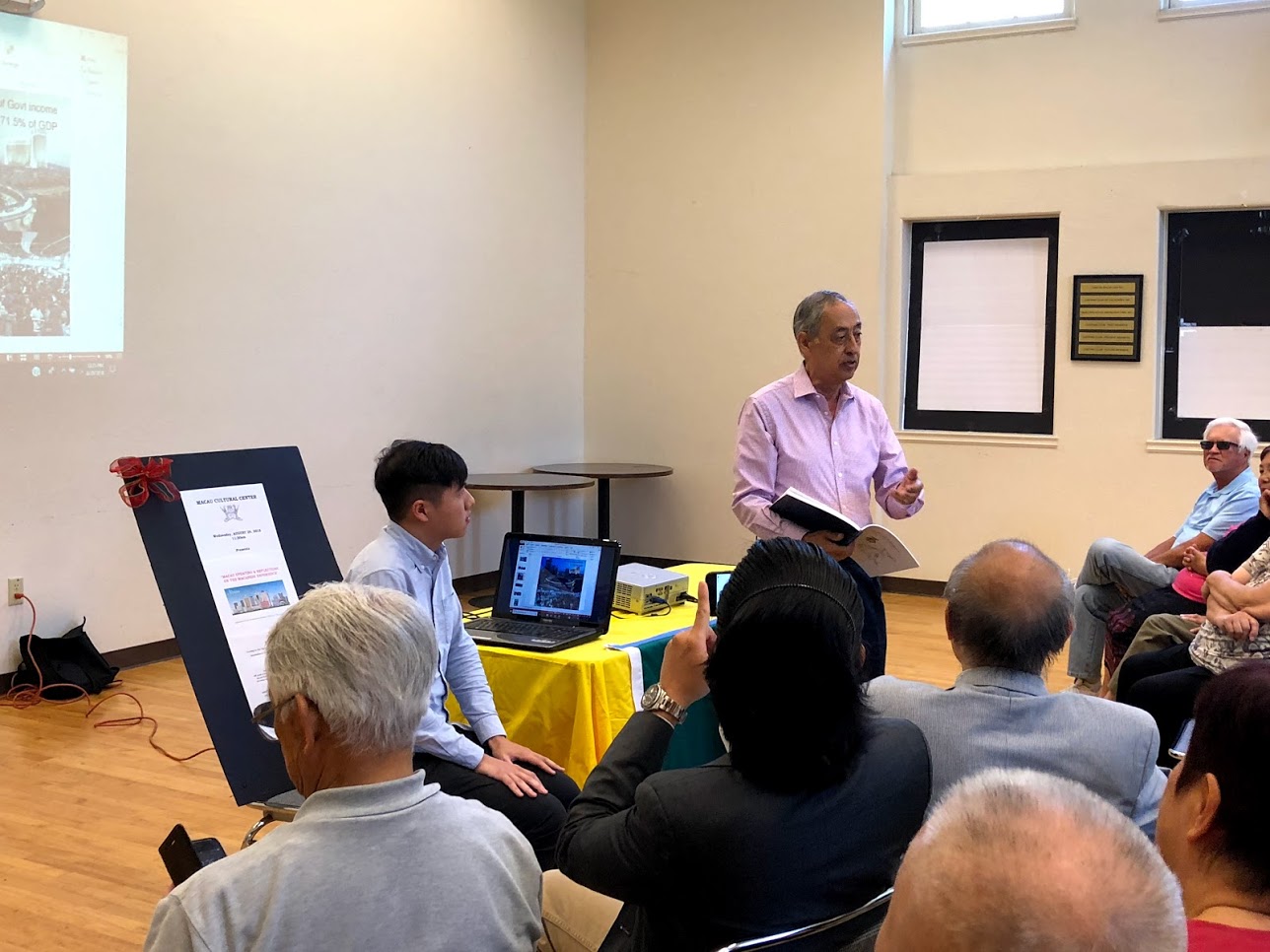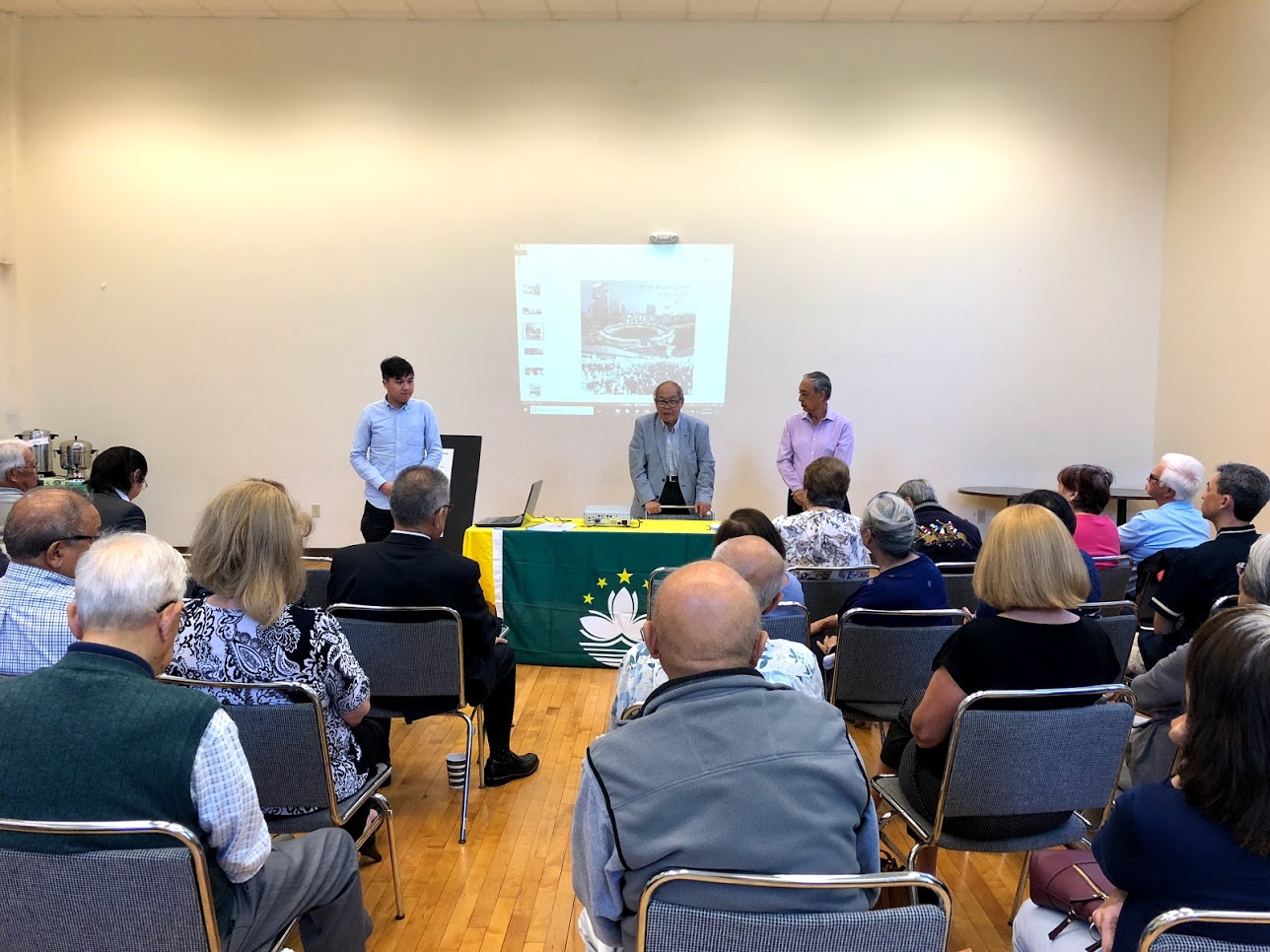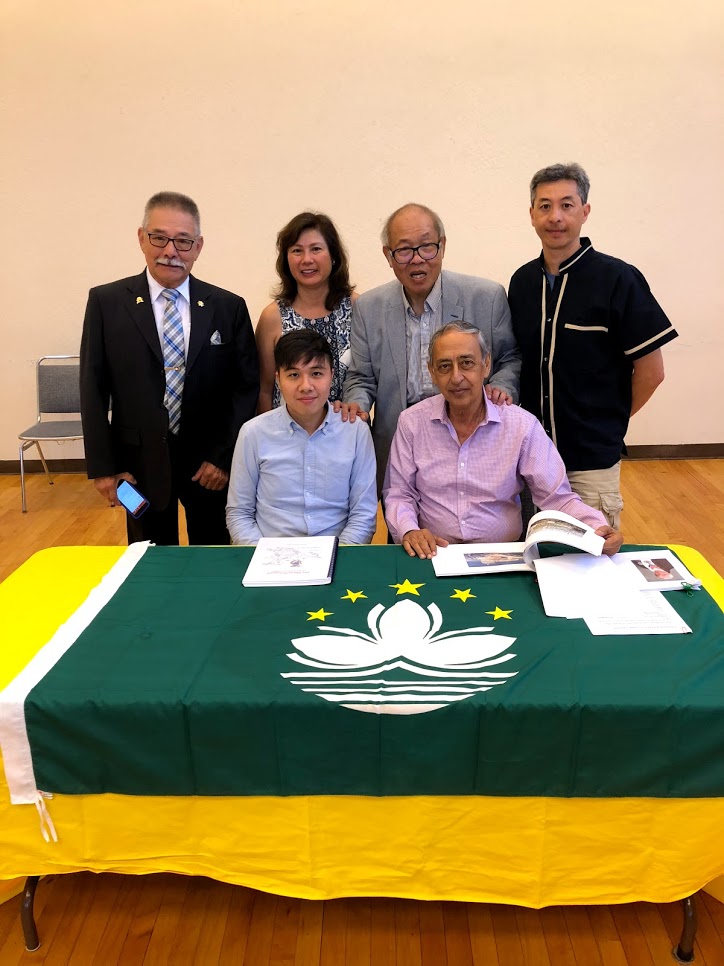On 29 August 2018, the Macau Cultural Center hosted a symposium for around 60 attendees, a collaboration of the Lusitano Club of California with the International Institute of Macau and with the support of the Macao Foundation. The main speakers were Mr. António M. Jorge Da Silva and Mr. Davis Hou Nam Ip, with introduction made by Professor Ming K. Chan of Stanford University.
António Jorge da Silva who has dedicated the last 20 years to documenting the history of the “Macaense” people, spoke about his book "Macaenses: the Portuguese in China (2015)" which was recently revised by him then translated into Chinese by Davis Ip to be published in 2019. António da Silva commented that “many historians have written about the History of Macau, but little has been mentioned of its people. Our descendants now all over the world know little about our people, how our ancestors lived, and who we are genetically.” His book discusses this subject and refers to class distinction in the society of the Portuguese people of Macau. He has also introduced his upcoming illustrated book "The Portuguese Community in Macau, A Pictorial History" illustrating the persona of this Portuguese city on Chinese soil and the Macaense community who lived there.
Mr. Davis Hou Nam Ip, experienced young man, was graduated in the University of Macau and post grad from Universities in Netherlands and London, with experience as reporter for Macau Post Daily and TDM Chinese TV Channel. He took center stage to speak of his deepened appreciation of the Macaense in translating da Silva’s book into Chinese, and gave us an update and his reflections of Macau today through his journalistic lens:
• To how Macau has developed, changed and grown.
• The incredible reversal of the "4-tier social ladder", in which now the Chinese count.
• The rise of a conglomerate of opulent casinos, patronized in majority by clients from interior of China.
• The completed erection of the Hong-Kong-Zhuhai-Macau Bridge.
• Referenced how China benefits from Macau.
• That the Portuguese are an intricate and important asset to Macau. Together they are looking to diversify economics, by maintaining local culture, and ways of increasing tourism.
• Drew our attention to China's involvement in many different countries regarding assisting with infrastructure, labor, and various developments.
• Leaving us to speculate where Economic leadership is headed.
After the session, an enjoyable luncheon made by Chef Dorothy Oliveira was served with Macanese cuisine.











